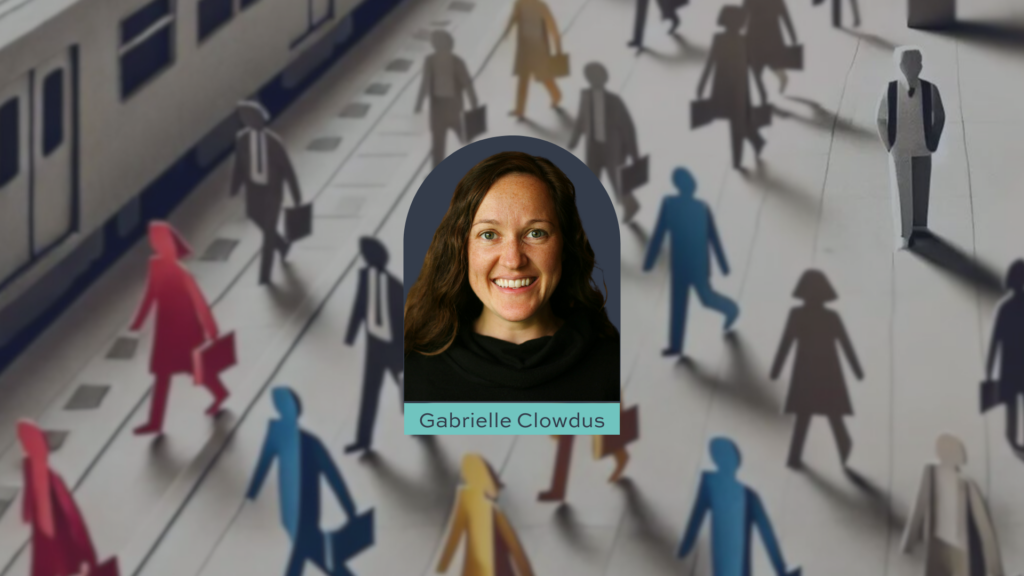Three Ways to Learn
Listen
Watch
Show Notes
In 2023, homelessness hit an all-time high in the United States. But simply providing shelter is seldom enough. How can churches provide the “full community” people need to turn their lives around? And how could it affect the congregation itself?
In this episode, you’ll hear from Gabrielle Clowdus of Settled, a movement to help churches develop permanent supportive tiny home villages designed to address long-term homelessness. Each Sacred Settlement is owned and operated by the worshiping community on their land, with Settled by their side for the journey. Gabrielle and Heather discuss what she describes as Full Community. Gabrielle identifies five key elements of what she describes as a Full Community: Intentional Neighbors, Permanent Homes, Cultivated Places, Purposeful Work, and Supportive Friends.
Dr. Gabrielle Clowdus founded Settled, a movement of believers radically committed to life with the poor. Settled was birthed out of Gabrielle’s doctoral research on chronic homelessness and affordable housing, where she discovered the critical response is enduring relationships. She lives at the Settled Homestead in Minnesota with her husband and their four daughters, where they practice standing at the crossroads, looking, and asking for the ancient paths.
In season 5 of the Fresh Expressions podcast, we’re exploring the loneliness epidemic that is sweeping across North America and learning how new kinds of Christian community can help.
Help us spread the word about the Dinner Church podcast by subscribing and leaving us reviews on Apple Podcasts, Spotify, YouTube or wherever you enjoy your podcasts.
Related Resources:
Email us: podcasts@freshexpressions.com
Interview Summary
“In our interactions with every individual, heaven touches Earth — these moments are all around us.” — Gabrielle Clowdus
This powerful statement from Gabrielle Clowdus during the latest episode of the Fresh Expressions podcast encapsulates the profound connection and transformative potential of human interaction. Gabrielle Clowdus, a visionary founder of the nonprofit Settled, shares her journey and insights into how communities can actively combat the loneliness epidemic through intentional living and church involvement. Hosted by Heather Jallad, this episode dives deep into the roles that faith communities can play in addressing systemic issues like chronic homelessness.
Gabrielle Clowdus brings an extensive background in doctoral research on chronic homelessness and affordable housing to her role as the founder of Settled. Her nonprofit emerged from her passion for seeing the local church welcome the outcasts of society into a life of interdependence and intentionality.
The Beginnings of ‘Settled’
Gabrielle Clowdus’ journey with ‘Settled’ began as a reaction to a local hospital’s struggle with chronically homeless individuals using the emergency room as a makeshift shelter. This initiative sought to provide more sustainable solutions by creating tiny home villages that offer more than just shelter—they rebuild a sense of community and permanence. “We’re not just providing homes, we’re healing a community,” Gabrielle emphasizes, underscoring the transformative vision behind Settled.
Every major healthcare system is waving the white flag, overwhelmed by the costs and complexities of homelessness.” — Gabrielle Clowdus
Philosophy of Full Community
The ‘Full Community’ model is built on the foundation that every individual needs a sense of belonging and purpose. By focusing on five elements—intentional neighbors, permanent homes, cultivated places, purposeful work, and supportive friends—Settled aims to restore the basic human needs that are often stripped away by homelessness. Gabrielle explains, “It’s about more than just housing; it’s about creating a space where everyone can grow and thrive together.”
“Intentional neighbors and permanent homes are just the beginning; we must cultivate places and purposes that foster true community.” — Gabrielle Clowdus
Impact on Local Churches
When local churches integrate the Settled model, they often experience a revitalization of their community and mission. Gabrielle shares stories of churches that, despite their different socio-economic contexts, have seen increased engagement and attendance as they embrace radical hospitality. “These churches didn’t start with a homeless ministry; they started with a mission to be radically hospitable,” she points out, highlighting the broad applicability and transformative potential of the Settled approach.
Challenges and Successes
Adopting the Settled model isn’t without its challenges, such as overcoming neighborhood resistance and adjusting church operations to accommodate new activities. However, the successes—marked by profound personal transformations and community integration—outshine these hurdles. Gabrielle shares, “We’ve seen individuals who’ve spent decades on the streets now leading lives filled with hope and community, proving that change is truly possible.”
“The real measure of our success is seen in the renewed hope and lives of those we serve.” — Gabrielle Clowdus
Gabrielle Clowdus’ work with Settled not only challenges but also inspires us to rethink our approach to homelessness and community involvement. By integrating the marginalized into the heart of community life, we can address not just the symptoms but the root causes of homelessness. As we reflect on Gabrielle’s insights, it’s clear that the mission of the church extends far beyond its walls, offering a beacon of hope and transformation.
“Every person that’s in this should be getting some healing in this.” — Gabrielle Clowdus
Reflection Questions
- How can your community more effectively engage with and support the homeless population?
- What barriers exist in your community that prevent the integration of such a model?
- How does the concept of ‘Full Community’ challenge your understanding of church and ministry?
- What role can you personally play in fostering a more inclusive and supportive environment?
- How can faith communities shift from temporary relief to sustainable support?
- In what ways can your community use underutilized spaces to benefit the marginalized?
- How can the principles of ‘Full Community’ be adapted to other social issues in your area?
- What is one actionable step you could take this month to help move toward community-based solutions?

